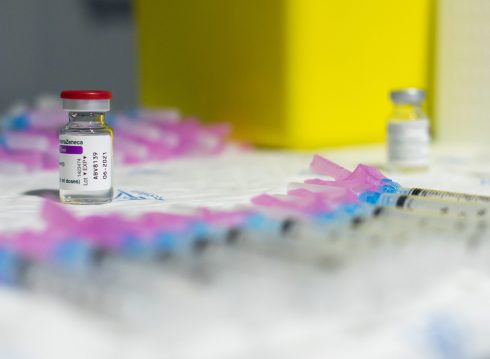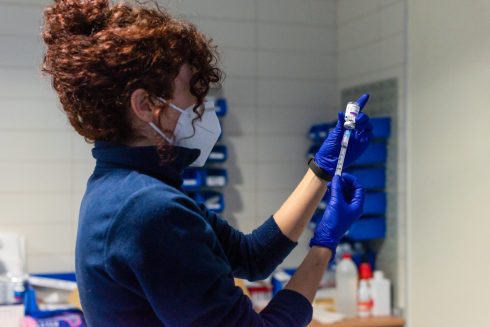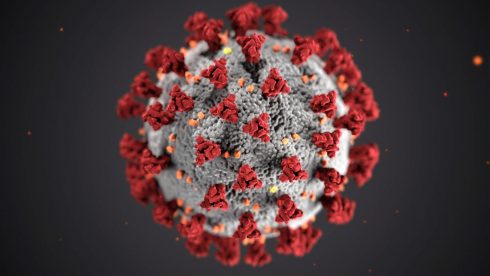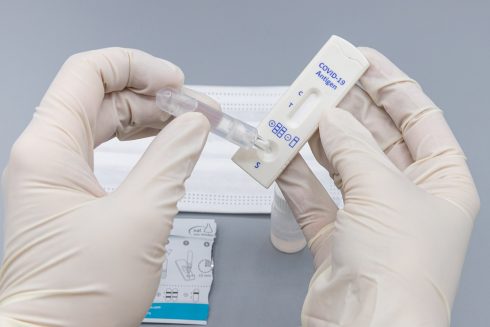NEWS that Spain had followed other European countries in halting use of the AstraZeneca vaccination left people across the nation asking one important question: Does this mean a delay in when I get the vaccine?
Already far behind the UK in its vaccination plan where more than 24 million people have received at least one dose of a coronavirus vaccine and those aged over 56 are now being invited to get the jab.
Spain’s Ministry of Health on Monday ordered the immediate halt of jabs of Oxford vaccine for a period of fifteen days pending full investigation into possible side-effects amid worries that they could cause thrombosis – or blood clots – while the European Medicines Agency (EMA) is preparing a report on the matter.
Spain followed in the wake of Germany, Italy and France in making the decision to suspend AstraZeneca dosing on Monday following earlier decisions to do so by Denmark, Norway, Iceland, the Netherlands and Ireland.

‘Precautionary measure’
They emphasized that this was a “precautionary measure” and it later emerged that only one single suspected case of thrombosis had been observed among the nearly one million people who have received the jab.
Spain had taken the decision to only use the AstraZeneca vaccine on those under the age of 55 and so far 939,543 doses had been administered to those considered “essential workers” not in the frontline of coronavirus healthcare. This group includes teachers, those working within security and emergency services and social workers.
But this group has been left not only nervous that they may suffer side-effects but also wondering if and when they will receive the second dose – jabs that have to be given within three months of the first in order for the vaccine to be fully effective.
Health Minister Carolina Darias urged calm on this matter: “The second dose of the AstraZeneca vaccine is administered between 10 and 12 weeks after the first, so there is sufficient time to study the cases and make a decision,” she said in a televised address on Monday.
Meanwhile, the director of the Spanish Medicines Agency, Maria Jesus Lamas Diaz, emphasized that those who have had the first dose already have a degree of protection against the virus itself and the risk of side-effects remained very unlikely.
“I insist on a message of calm,” Lamas Diaz said. “With a single shot of the vaccine you can expect to have at least partial protection against COVID. The possibility of an adverse reaction exists with any drug, but these cases detected are very rare and the incidence is very low.”
Side effects
Lamas Diaz explained the possible symptoms relating to side-effects detected in other places in Europe that appeared within three and 14 days after the jab was received.
“Patients experienced a very severe and unusual headache, which may be accompanied by vomiting, visual dysfunctions or irregular bleeding,” she said.

How many doses have so far been administered in Spain?
According to the Ministry of Health report on Monday, only 55.25% of the 1,700,500 AstraZeneca doses sent to Spain had so far been used and the remainder would be kept refrigerated pending a decision to resume.
Only eight people across the whole of Spain have received both doses of AstraZeneca vaccines.
In total more than 5.6 million individual jabs have been given to Spain’s population, comprising a majority of Pfizer vaccines (4,459,254). Barely a quarter of a million – or 246,107 doses to be exact – of the Moderna doses have been administered.
Will it delay the vaccination programme?
Spain had taken the decision to only vaccinate healthy under-55’s with the AstraZeneca vaccine reserving the Moderna and Pfizer doses for those more vulnerable groups including the elderly and those with pre-existing medical conditions.
Therefore the suspension of the Oxford vaccine is likely to have little effect on the rolling out of the general vaccination programme according to priority groups laid out in the initial plan which started with immunization of frontline health workers, residents in care homes and those who care for them.
It is however likely to delay those under 55-year-olds who were set for the vaccine within the next few weeks. In fact, large numbers of teachers who had been given vaccine appointments within the next fortnight have reportedly been telephoned by their health authorities telling them not to attend and to wait for their jabs to be rescheduled.
Government spokeswoman Maria Jesus Montero said on Tuesday that the temporary suspension of AstraZeneca’s coronavirus shots will not alter the country’s vaccination calendar.
She insisted that Spain remains on target to vaccinate 70% of its 47 million population by the end of summer.
READ MORE:
- AstraZeneca vaccine ‘fears’ delay fast-track immunisation of teachers against COVID-19 on Spain’s Costa Blanca
- Spain releases new order of vaccination groups and specifies which vaccines they will receive
- Spain hopes to introduce vaccine passports as early as May








